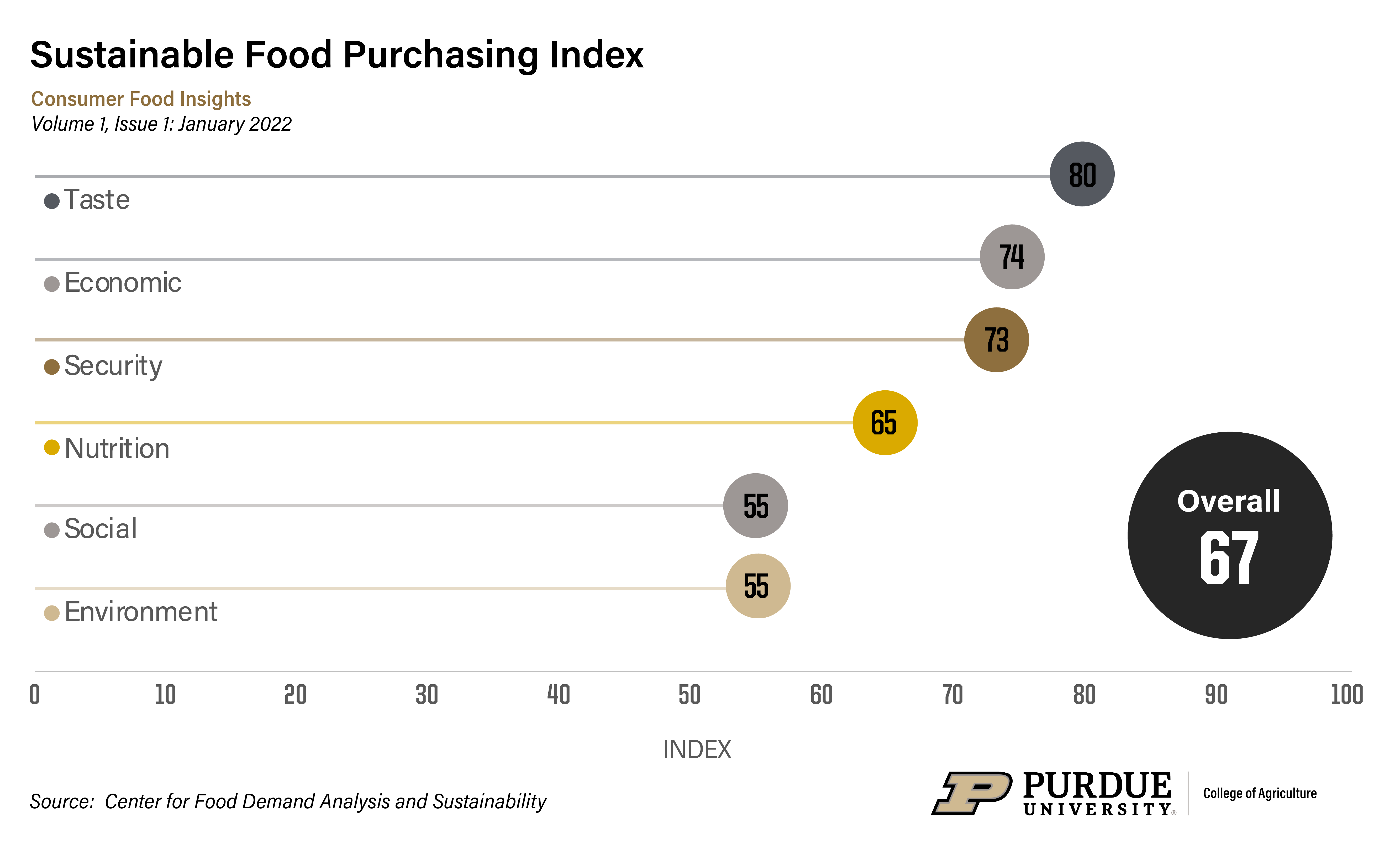Key results include:
- 25% of respondents were unable to find a specific food product at the grocery store.
- 32% of respondents are waiting for their next paycheck to buy groceries.
- 16% of respondents face food insecurity.
- 51% of respondents blame COVID-related shutdowns for the rise in meat prices.
- A Sustainable Food Purchasing (SFP) Index of 67/100.
ARE AMERICANS PURCHASING SUSTAINABLE FOOD?

The Sustainable Food Purchasing Index (SFP). The score reflects consumer food purchasing that aligns with a set of key recommendations for healthy diets from sustainable food systems. The SFP is part of the Purdue Consumer Food Insights Report, a new monthly report identifying trends and changes in consumer food purchases and preferences. (Purdue University image/Courtesy of the Center for Food Demand Analysis and Sustainability)The Sustainable Food Purchasing (SFP) Index is a self-reported measure of food purchasing designed to assess how well consumer shopping habits correspond with healthy diets from sustainable food systems, as described by the EAT-Lancet Commission on Food, Planet, Health. SFP scores range from 1 to 100. A score of 100 reflects a set of key recommendations for better nurturing human health and supporting environmental sustainability.
WHAT WOULD YOU LIKE TO KNOW ABOUT CONSUMERS?
If you are interested in additional analysis or adding questions to the survey, consider joining our Consumer Insights consortium. Contact rdevans@purdue.edu to learn more.
Survey Questionnaire: January 2022
Formulas and Calculations
February 15, 2022

